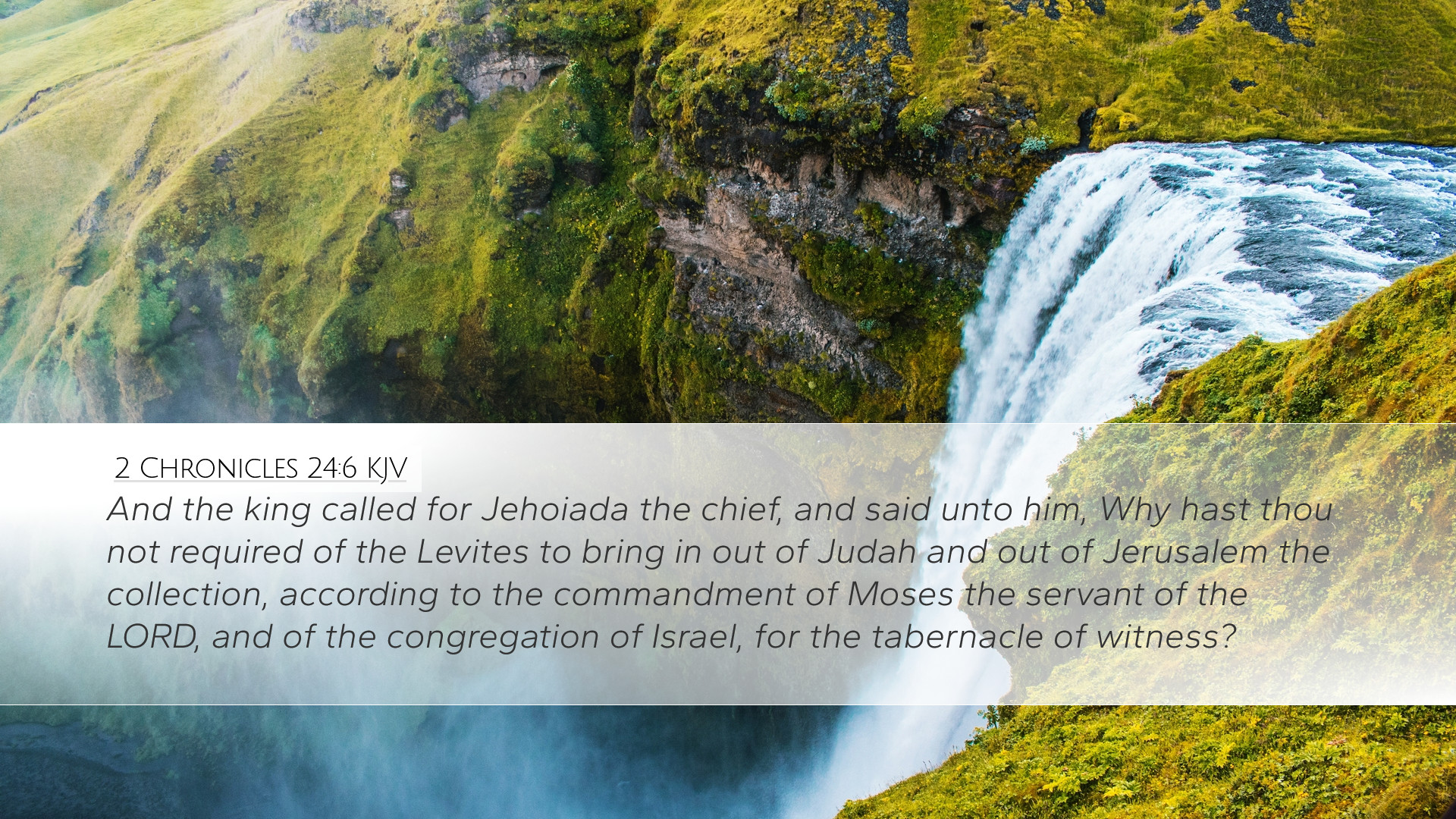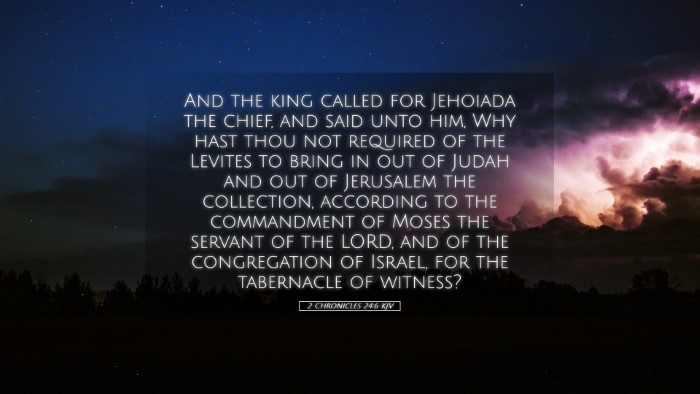Commentary on 2 Chronicles 24:6
In 2 Chronicles 24:6, we encounter a significant moment in the history of Judah, which underlines themes of leadership, faithfulness, and accountability. This verse recounts the actions taken by King Joash in the context of the temple's restoration, sparked by both a spiritual revival and a pressing need for stewardship.
Text of 2 Chronicles 24:6
"And the king called for Jehoiada the chief, and said unto him, Why hast thou not required of the Levites to bring in out of Judah and out of Jerusalem the collections, according to the commandment of Moses the servant of the Lord, and of the congregation of Israel, for the tabernacle of witness?"
Historical Context
The context of this verse is critical in understanding Joash's reign. After ascending to the throne as a child, Joash was guided by the high priest Jehoiada. During his early reign, there was a reformation initiated, aimed at restoring the worship of Yahweh and rebuilding the neglected temple. However, this verse signifies a clear moment of accountability as Joash realizes that the appropriate actions concerning temple collections were not being followed.
The Leadership of Joash
Joash as a reformer: The actions of Joash reflect a king who is concerned about the state of worship in his kingdom. He understood the significance of the Temple as a focal point of Jewish worship and the necessity of its upkeep.
Emphasis on accountability: By addressing Jehoiada, Joash demonstrates a collaborative leadership style. He seeks to hold leaders accountable for ensuring that the directives concerning the Temple's maintenance are not overlooked.
The Role of Jehoiada
Jehoiada's influence: As the high priest, Jehoiada had considerable authority. This verse raises questions about his responsibilities and the fulfillment of his duties concerning the Levites and their offerings.
Spiritual oversight: The failure to collect the necessary funds for the Temple repairs can often indicate a spiritual decline among the leaders and the people. Jehoiada was instrumental in revitalizing faith and must ensure that the people contribute to the work of the Temple.
The Importance of Temple Collections
Biblical basis: This mention of collections is critical. The commandment referred to comes from the established practices of the Israelites, as outlined in the Law of Moses, which required contributions for the maintenance of the Tabernacle and later the Temple.
Meaning for the community: These collections served to unite the people in a common purpose of worship and service. By neglecting this aspect, the community may drift from their covenant obligations.
Theological Insights
The significance of worship: This verse not only highlights the physical restoration of the Temple but also symbolizes the broader concern for proper worship and reverence towards God.
A call to stewardship: Joash’s directive emphasizes the need for stewardship in both a spiritual and temporal sense. This reflects the need for diligence in managing the sacred responsibilities entrusted to the leaders and the people.
Lessons for Today
Leadership accountability: The principles exemplified by Joash serve as a reminder to contemporary leaders in the church about the necessity of holding each other accountable in matters of faith and practice.
The role of community: Just as the Israelites were collectively responsible for the upkeep of the Temple, today’s church communities are called to support their local congregations and contribute to the work of ministry.
Conclusion
This concise yet profound verse highlights the importance of leadership, community responsibility, and spiritual vigilance. As modern readers reflect on 2 Chronicles 24:6, they are encouraged to consider their own roles and the roles of their leaders in ensuring that God's house is cared for and that the worship of God remains at the center of their communal life.


